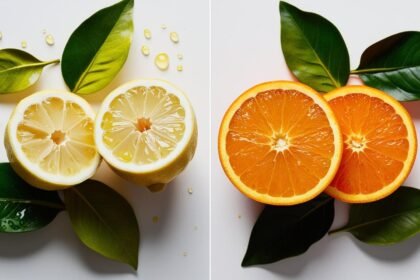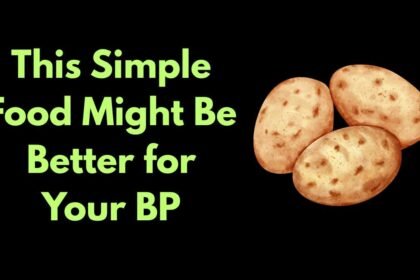Prune juice has been used for ages because of its popularity and the health benefits it provides. Prune juice has several uses beyond aiding digestion, which is well-known.
The many nutrients included in prune juice have been shown to benefit skeletal health, cardiovascular health, and more. This article will explain why prune juice is so good for you, and how you may start include it in your daily diet.

Nutritional Value of Prune Juice
Prune juice, which is extracted from dried plums, is a healthy and delicious drink. It’s rich in both macro and micronutrients, making it a well-rounded food choice.
Macronutrient and Micronutrient Content of Prune Juice
Carbohydrates, the predominant macronutrient in prune juice, are a great source of energy. One 8-ounce serving has roughly 26 grammes of carbs. Simple sugars like fructose and glucose, which are included in prune juices, are absorbed rapidly by the body and provide an immediate source of energy.
Less than 1 gramme of fat and 1 gramme of protein can be found in an 8-ounce serving of prune juices. Nonetheless, it has a lot of fibre, which is a vitally necessary dietary supplement. Around 2.6 grammes of fibre, or about 10% of the daily recommended consumption for adults, can be found in an 8-ounce serving of prune juices.
Micronutrients like potassium, vitamin K, and vitamin A can be found in abundance in prune juices. Potassium, found in abundance in prune juice at about 530 milligrams per 8-ounce dose, is crucial for normal blood pressure and heart function.
Also, it has about 24 micrograms of vitamin K, which is crucial for normal blood clotting and bone health. Pruning can help you maintain good vision, immunity, and skin health since prune juice contains vitamin A; one 8-ounce portion has about 235 IU of vitamin A. (IU).
Importance of These Nutrients for Overall Health
Fatigue and weakness might set in if the diet is deficient in carbs, the body’s principal source of energy. Prune juice is a great option for athletes or others who need a quick pick-me-up due to the simple carbohydrates it contains.
The digestive system benefits greatly from fibre. Constipation is avoided and regular bowel motions are facilitated. Furthermore, fibre can assist in reducing cholesterol levels and the probability of developing heart disease.
If you want to keep your blood pressure normal and your heart working properly, then you need to have plenty of potassium. The risk of hypertension and cardiovascular disease can be mitigated by eating a potassium-rich diet.
Vitamin K helps the blood clot and is essential for strong bones. Too much bleeding and brittle bones might result from not getting enough vitamin K in the diet.
Vitamin A helps keep your eyesight, immune system, and skin healthy. It aids in preventing eye problems, warding off illness, and keeping skin looking fresh and glowing.
Digestive Benefits
Constipation is a common problem that can be helped by drinking prune juices, and this advantage has been known for quite some time. Prune juice’s insoluble and soluble fibers can aid in maintaining regular bowel habits by increasing the volume of faeces and making them simpler to flush.
As an added bonus, natural sugar alcohols like sorbitol are present in prune juice and also contribute to its laxative effects.
In addition to helping with constipation, prune juice may also have additional beneficial effects on the digestive system. Pruning can help enhance digestive health in a number of ways, according to research.
Prunes help reduce inflammation and oxidative stress in the digestive tract, and they also encourage the growth of beneficial bacteria there. Consuming prune juice on a regular basis has been linked by some studies to a lower chance of acquiring colon cancer.
Although prune juices may help with digestion, it is not an effective treatment for chronic constipation or other gastrointestinal problems. Before adding prune juice or making any other dietary adjustments, people with digestive issues should talk to a doctor.
Bone Health Benefits
Importance of Bone Health
Maintaining strong bones is crucial to your health and quality of life in general. Bones are important because they hold the body together, shield internal organs, and supply the body with nutrients like calcium and phosphorus.
Fractures and a decline in mobility are common results of age-related bone illnesses like osteoporosis. Hence, a healthy diet and regular exercise are essential for keeping bones strong and healthy.
Nutrients in Prune Juice that Promote Bone Health
Many nutrients vital to bone health can be found in prune juice. Vitamin K, found in abundance in this food, is essential for bone metabolism because it aids in calcium binding to the bone matrix.
Bone-building nutrients including calcium, magnesium, and potassium can be found in prune juice as well. Bone strength is mostly derived from calcium, but magnesium and potassium are required for calcium absorption and utilization.
Study on Prune Juice’s Effects on Bone Health
The impact of prune juices on bone health has been the subject of multiple scientific investigations. The bone mineral density of postmenopausal women who drank prune juice daily for six months was found to be significantly higher than that of those who did not drink prune juice.
In a separate study, rats with induced osteoporosis had better markers of bone growth and bone resorption after drinking prune juices.
Prunus juice may indirectly aid bone health because to its nutritional richness and other health advantages. Antioxidants, which help shield cells from damage caused by free radicals and inflammation, can be found in plentiful supply in foods like prune juices.
Consuming anti-inflammatory foods like prune juice may help lower the risk of bone loss and osteoporosis, which can occur as a result of chronic inflammation.
Heart Health Benefits
1. Importance of Heart Health
The heart is an essential organ because it circulates blood all around the body. Cardiovascular disorders, such as high blood pressure, coronary heart disease, and stroke, are a major threat to people’s health, making it imperative that they practice heart-healthy lifestyle habits.
2. Nutrients in Prune Juice that Promote Heart Health
The antioxidants, potassium, and fibre in prune juice all contribute to better heart health. Potassium helps keep blood pressure normal and the heart beating normally. Consuming more fibre has been shown to reduce cholesterol and triglyceride levels, as well as the risk of cardiovascular disease.
Polyphenols and other antioxidants can save the heart from damage by decreasing inflammation and oxidative stress.
3. Prune Juice Research on Heart Health
Pruning may improve cardiovascular health, according to some research. One study indicated that mild hypertensives who drank prune juices daily for 8 weeks saw significant improvements in their blood pressure and cholesterol levels.
Endothelial function, which is critical for preserving healthy blood arteries and decreasing heart disease risk, was enhanced by regular consumption of prune juices for 6 months, according to another study.
Other Health Benefits
1. Antioxidant Properties of Prune Juice
Pruning can help prevent chronic diseases including cancer, diabetes, and heart disease since prune juice is full of antioxidants like phenolic chemicals and flavonoids. Drinking prune juices regularly has been shown to boost antioxidant activity and decrease inflammation.
2. Potential Benefits for Weight Loss and Diabetes
Being a low-calorie fruit juice, prune juice can be used into a healthy weight loss plan. Fiber and sorbitol, a sugar alcohol that can aid in glucose control, are also present. Consuming prune juices on a regular basis has been shown to increase insulin sensitivity and decrease the likelihood of developing type 2 diabetes.
Risks and Precautions
Most people can drink prune juice moderately. Nonetheless, excessive prune juices use may pose dangers. Sorbitol, a natural sugar alcohol, is found in prune juice. Too much can induce diarrhoea and stomach pain. Sorbitol overdose can cause dehydration and electrolyte abnormalities.
Prune juices should also be avoided by certain patients. Due to its high sugar content, prune juice can increase blood sugar in diabetics. Prunes may increase IBS symptoms including bloating and gas.
Commercial prune juices may contain sugars and preservatives, which may raise the risk of side effects. Unsweetened, organic prune juice is best. Before adding prune juice to your diet, see a doctor, especially if you have a medical condition or take medications that may interfere with it.
Incorporating Prune Juice into Your Diet
1. Prune Juice Diet Tips
- Start small: You should start by evaluating your body’s reaction to a little amount of prune juice (4-6 ounces).
- Mix with other juices: You can customise the flavour of prune juice by combining it with other juices like apple or orange.
- Use it as a sweetener: Smoothies and homemade sauces can benefit from the addition of prune juices as a natural sweetener.
- Add to breakfast: Oatmeal with prune juices added, or pancakes and waffles with prune juice instead of maple syrup.
- Use as a marinade: Prune juices can be used as a marinade for meats or as an ingredient in barbecue sauce.
2. Serving suggestions and recipes
- Prune juice smoothie: Blend together 4-6 ounces of prune juice, a frozen banana, and a handful of spinach for a healthy and delicious smoothie.
- Prune juice-glazed chicken: Use prune juice as a base for a marinade for chicken, then bake or grill the chicken for a tasty and healthy dinner option.
- Prune juice vinaigrette: Mix together 2 tablespoons of prune juices, 1 tablespoon of olive oil, 1 tablespoon of balsamic vinegar, and a dash of salt and pepper for a healthy salad dressing.












